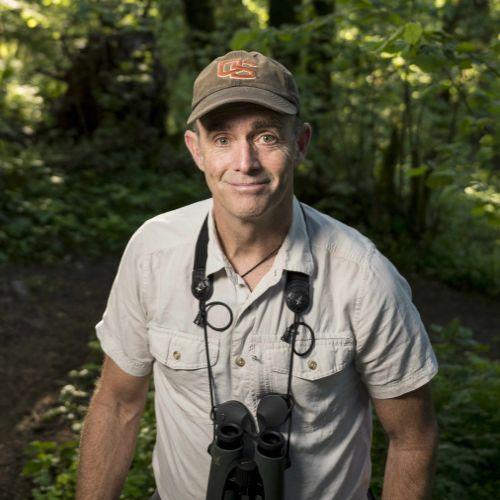
Betts, Matthew
- Landscape Ecology
- Wildlife Ecology
(1) Influences of landscape structure on demography of animal populations, (2) Animal movement (particularly dispersal), (3) Population viability modeling, (4) Ecological thresholds, (5) Trophic cascades in forest ecosystems, (6) Species distribution modeling, (7) Socio-political mechanisms to affect sustainable forestry (8) Measuring landscape change.
- Landscape Ecology
- Forest Management and Biodiversity Conservation
- Forest Conservation in Malaysian Borneo
Betts, M.G., Yang, Z., Hadley, A.S. et al. 2024. Quantifying forest degradation requires a long-term, landscape-scale approach. Nature Ecology and Evolution 8, 1054–1057 https://doi.org/10.1038/s41559-024-02409-5
Valente, J.J., Gannon, D.G., Hightower, J., Kim, H., Leimberger, K. G., Macedo, R., Rousseau, J. S., Weldy, M. J., Zitomer, R. A., Fahrig, L., Fletcher Jr, R. J., Wu, J., & Betts, M. G. 2023. Toward conciliation in the habitat fragmentation and biodiversity debate. Landscape Ecology 38, 2717–2730 https://doi.org/10.1007/s10980-023-01708-9
Betts, M.G., Yang, Z., Hadley, A.S. ., Smith, A.C., Rousseau, J.S., Northrup, J.M., Nocera, J.J., Gorelick, N. and Gerber, B.D. 2022. Forest degradation drives widespread avian habitat and population declines. Nature Ecology and Evolution 6, 709–719 https://doi.org/10.1038/s41559-022-01737-8
Stokely, T.D., Kormann, U.G., Verschuyl, J., Kroll, A.J., Frey, D.W., Harris, S.H., Mainwaring, D., Maguire, D., Hatten, J.A., Rivers, J.W., Fitzgerald, S. and Betts, M.G. 2021. Experimental evaluation of herbicide use on biodiversity, ecosystem services, and timber production tradeoffs in forest plantations. Journal of Applied Ecology. https://doi.org/10.1111/1365-2664.13936
Betts, M.G., Wolf, C. et al. (& 37 co-authors). 2019. Extinction filters mediate the global effects of habitat fragmentation on animals. Science 366(6470):1236-1239
Betts, M.G., Wolf, C., Ripple, W., Phalan, B., Butchart, S. and Levi, T. 2017. Forest loss disproportionately erodes biodiversity in intact landscapes. Nature 547, 441–444. doi:10.1038/nature23285
Frey, S.J.K., Hadley, A.S., Johnson, S. L., Schulze, M., Jones, J. A. and Betts, M. G. 2016. Spatial models reveal the microclimatic buffering capacity of old-growth forests. Science Advances 2, e1501392.
Kormann, U., Scherber, C., Tscharntke, T., Klein, N., Larbig, Valente, J.M., Hadley, A.S. and Betts, M.G. 2016. Corridors restore animal-mediated pollination in fragmented tropical forest landscapes. Proceedings of the Royal Society Ser. B. 283: 20152347.
Betts, M.G., Hadley, A.S. and Kress, W.J. 2015. Pollinator recognition by a keystone tropical plant. Proceedings of the National Academy of Sciences of the USA 112:3433–3438. doi: 10.1073/pnas.1419522112
Betts, M.G., Fahrig, L., Hadley, A.S., Halstead, K.E., Robinson, W.D. Bowman, J., Wiens, J.A., and Lindenmayer, D.B. 2014. A species-centered approach for uncovering generalities in organism responses to habitat loss and fragmentation. Ecography 37(6):517-527.
Hadley, A.S. and Betts, M.G. 2012. The effects of landscape fragmentation on pollination dynamics: absence of evidence not evidence of absence. Biological Reviews 87(3): 526-544.